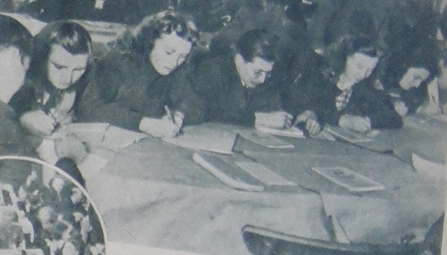The Intellectual Heritage of Feminist Political Thought during the Early State Socialism. The Cases of the German Democratic Republic, Hungary and Yugoslavia

This project will be the first comparative and transnational intellectual history of feminist thought and women’s rights discourses in three East Central European countries: the German Democratic Republic (GDR), Hungary, and Yugoslavia from 1945 until 1956, the early years of de-Stalinisation. Drawing on a wide range of archival, textual, and literary sources in four languages, and integrating the voices of women from ethnic and sexual minorities, this innovative project will trace the circulation and transfer of feminist ideas in the region during the crucial period of ‘building socialism’, when communist regimes were implementing radical policies to achieve the emancipation of women. This project reinterprets the story of feminism in the region in relation to state socialism and the history of state socialism through the lens of feminism. It also refines and challenges both the notion that women’s equality was fulfilled by state socialism and that there was no feminism behind the “Iron Curtain.” Socialist regimes claimed to have solved the ‘women’s question’ and dismissed feminism as outdated and unnecessary. But this project argues that feminist ideas informed a variety of intellectual and political discourses after 1945, including both official discourses of women’s rights, and more critical perspectives on questions such as the limits of political participation, reproductive rights, the uneven and highly gendered division of domestic work, and even violence against women. This project will reconstruct the multiplicity of official and unofficial feminist discourses circulating in East Central Europe even during the period of Stalinism. By situating the broad variety of sources in their local, regional and transnational contexts, this project integrates feminist political thought and women’s rights discourses in these three East Central European countries into the broader European intellectual tradition and within a larger intellectual history of global feminisms.
This is a postdoctoral project run by Dr Zsofia Lorand, funded by a Marie Sklodowska-Curie Individual Fellowship, supervised by Dr Celia Donert.
Image: women from all over the world - report in the Hungarian women workers' magazine about the first WIDF meeting
